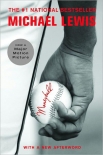Moneyball by Lewis, Michael (books to read in your 30s TXT) 📗

Book online «Moneyball by Lewis, Michael (books to read in your 30s TXT) 📗». Author Lewis, Michael
Chapter
XI
The Human Element
Earlier that historic September evening, before Chad Bradford took the mound, a traffic jam extraordinary even by Northern California standards stretched as far as the eye could see. The Oakland A’s ticket office had never experienced anything quite like the crush of the previous two days. When the Kansas City Royals came to town, the A’s sales department expected about ten thousand fans to turn up. In just the last twenty-four hours more than twenty thousand people had stopped by, in the flesh, to buy seats in advance. Before the game, an aerial view of Oakland would reveal nearly everyone in sight heading toward the Coliseum. Billy Beane alone was heading away from it.
Billy hadn’t the slightest intention of watching his team make history. It was just another game, he said, and he didn’t watch games. “All they provide me with is subjective emotion,” he said, “and that can be counterproductive.” He figured he could give a few press interviews, and then slip away in his Range Rover to Modesto. In Modesto, on the same night the Oakland A’s were trying to win their twentieth game in a row, the Visalia Oaks were playing the Modesto A’s. Both teams were Single-A affiliates of Oakland. Most of the players the A’s had drafted a few months before played for one or the other. Billy could stand to watch young men who still had time and space to fail: Nick Swisher, Steve Stanley, Mark Teahen, and Jeremy Brown. Especially Brown, the bad body catcher from Hueytown, Alabama. Everyone had laughed when the Oakland A’s drafted Brown in the first round. Every day Brown was more interesting to Billy.
And so the only moment that Billy Beane looked forward to, on a day he should have gloated through, was when he’d make his getaway. On his way out of the office, however, he’d been cut off by the team’s stunned marketing department. The people who sold the Oakland A’s couldn’t quite believe that the guy who’d built them was taking off. They explained to Billy that if he left, he might as well pile a bunch of money in the street and set it on fire: he’d be blowing the biggest chance they’d had in years to promote the Oakland A’s to the wider world. The winning streak had become a national news story. And so Billy, slightly miffed, stayed. He sat still for CBS Evening News, CNN, Fox Sports News, ESPN, and a few others, then went down to the weight room and hid, from the media and the game.
At some point between the treadmill and the stationary bicycle he noticed on his little white box that it was the bottom of the third inning and his team was ahead 11-0. For the first time in a very long while, he relaxed. Still dripping sweat, he set himself up in manager Art Howe’s empty office, with the television switched on. Nineteen games into a winning streak, up eleven-zip against one of the worst teams in baseball, with one of the best pitchers in baseball still on the mound for the Oakland A’s—this one game appeared safe to watch. It wasn’t going to violate the laws of probability; it wasn’t going to drive him mad, and cause him to do something he might later regret. At that moment, Billy Beane was so at peace with his world that he let me into it.
His feet were up on Art Howe’s Formica desk. He was feeling detached. Expansive. Delighted and delightful. This was the way he felt most of the time; this was the way he almost always handled himself away from baseball. He had, he confessed, expressed his concern when he saw that Art Howe had written John Mabry’s name on the lineup card, where Scott Hatteberg’s should have been. It was a shame for Hatteberg, I thought. Here he’s been performing these valuable and rather selfless services to the Oakland A’s offense, and the one game the world will watch, he isn’t allowed to play. Art explained to Billy that Hatteberg had never faced Kansas City’s ace, Paul Byrd. Mabry, on the other hand, not only had hit Byrd hard but claimed to be able to see him tipping his pitches—that is, Mabry could guess what Byrd was about to throw. Billy now says he deferred to Art’s judgment, as if deferring to Art’s judgment comes naturally to him. Mabry promptly made Art Howe look like a genius. He’d driven in one run with a single up the middle in the six-run first inning—and helped to chase Byrd from the game. Then, in the second inning, he’d whacked a solo home run.
With the score 11-0, and Tim Hudson still carving up the Royals lineup, the absence of Scott Hatteberg from the lineup is a distant memory. Billy Beane is right to feel his usual self: the odds of something going wrong are ridiculously small. He calls his daughter Casey, now twelve years old, and still living in Southern California.
“Hey Casey, you watching the game?”
Pause.
“American Idol? You’re watching American Idol??”
Casey is watching American Idol.
He tells Casey





Comments (0)